Faculty Success Stories
 Dr. Norm Friesen: Professor (Boise, Idaho)
Dr. Norm Friesen: Professor (Boise, Idaho)
(In the Department of Educational Technology in the College of Education), along with a team of researchers from Germany, is currently studying inclusivity in public education at Burnsview Secondary and Delta South Secondary Schools in Delta, British Columbia.
According to Friesen, German public schools are not characterized by inclusivity compared to the United States and Canada, a problem the researchers are looking to change.
“The clearest example of this non-inclusivity is the fact that students in Germany are streamed into advanced placement (AP) or trades in fourth grade, a decision made primarily by parents and teachers,” said Friesen. “Changing streams after this is extremely difficult.” Additionally, students with special needs learn separately from the general school population.
To help address problems created by streaming students in Germany, the team is using qualitative research to study data on inclusivity gathered at the schools in British Columbia to determine possible policy improvements in Germany.
“The findings from this research have the potential to have international impact,” said Friesen. “Schools in North America are being studied to find ways to make schooling more inclusive in Germany, Europe’s most populous nation.”
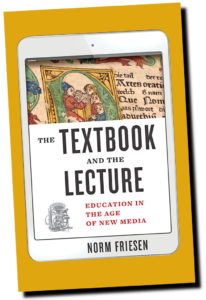
Friesen’s research supports public education advocacy and has informed his recent book,
“The Textbook and the Lecture:
Education in the Age of New Media”.
For more information, see:
Ed Tech professor studies inclusivity in public education.
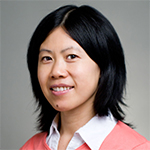 Dr. Dazhi Yang: Associate Professor (Boise, Idaho)
Dr. Dazhi Yang: Associate Professor (Boise, Idaho)
(In the Department of Educational Technology in the College of Education with joint/courtesy appointment with the College of Engineering) has built a multidisciplinary STEM educational research team at Boise State University. Dr. Yang and her team have secured approximately $1.5 million grant funding from the National Science Foundation (NSF) on engineering education and integrating computational thinking (CT) in K-12 STEM education since 2012. Previously, Dr. Yang collaborated with engineering faculty members on preventing first-year engineering students from developing misconceptions of thermodynamics and heat transfer concepts. Her latest STEM+ C (computing) project challenges upper level elementary school students to question, explore, and discover while developing CT practices, problem solving skills, and creativity through scientific inquiry and authentic real-world problem solving experiences. The STEM+C project also helped forge a partnership with the Boise School District and the Boise’s Parks and Recreations Department to provide professional development for teachers in community centers’ after school programs in addition to developing CT practices for upper level elementary school students. The successful STEM+C project has received additional funding from the NSF in September, 2018 to support additional efforts for project integration in formal, classroom settings. Recently, in a Featured Research talk at the 2018 Association for Educational Communications and Technology (AECT) annual conference, Dr. Yang presented on how to use technology to support student learning in a STEM+C curriculum. Additionally, Dr. Yang served on the expert review panel for the Idaho Governor’s STEM Action Center’s Computer Science Teacher Professional Development Program. Dr. Yang’s professional commitment is to assist students in achieving computational thinking (CT) practices, discovering STEM knowledge, having an appreciation for the STEM fields, and developing a lifelong passion for discovery and innovation.
For more information, see: EdTech research grant provides after school programs for computational thinking.
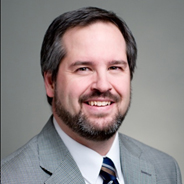 Dr. Ross Perkins: Associate Professor (Boise, Idaho)
Dr. Ross Perkins: Associate Professor (Boise, Idaho)
In spring 2017, Dr. Ross Perkins, associate professor of educational technology, was elected as the president-elect for the Design & Development Division of the Association for Educational Communications and Technology (AECT; aect.org). In his capacity as president-elect, Perkins has been working with the 2018 Conference Planning committee to organize the upcoming AECT Annual Conference, which will be held this year in Kansas City, Missouri. The presidents-elect for each division solicit the help of peer reviewers for conference proposals, advertise the early spring Call for Proposals, leads the review process (February to April), and attends to numerous other details to prepare for the division’s conference experience. The Design & Development Division is one of the oldest divisions of the conference and annually garners the highest number of proposals. Perkins becomes division president in October. His goal is the continue to find ways for Design and Develop to be the professional home of instructional designers no matter their work context. The division has long benefitted from the influence, research, and writing of outstanding scholars, and making these contributions even more apparent is another goal of his over the next several months. The Design & Development leadership position is Perkins’ second time leading a division of AECT; he is a past president of the International Division.
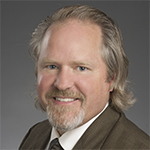 Dr. Brett Shelton: Department Head. (Boise, Idaho)
Dr. Brett Shelton: Department Head. (Boise, Idaho)
is currently leading a team of Department faculty who were awarded a grant to better prepare high schoolers for college. The federal grant is designed to add computing curriculum to Mountain Home School District, as well as prepare their teachers in technical professional development. The grant supports K-12 teachers by having them earn their Masters of Educational Technology degrees, while offering workshops in how to implement computing curriculum in their schools. The grant is due to begin in 2018, and will offer service and research opportunities for the subsequent four years.
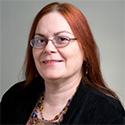 Dr. Chareen Snelson: Associate Professor and Associate Department Head (Boise, Idaho)
Dr. Chareen Snelson: Associate Professor and Associate Department Head (Boise, Idaho)
developed an experimental curriculum that used the World of Warcraft online multiplayer game to teach doctoral students about qualitative research methods. Three doctoral students, Christopher Wertz, Kimberly Onstott, and Jason Bader completed their innovative practices work by beta-testing the curriculum under Dr. Snelson’s supervision. The result of this work was a peer-reviewed article that Dr. Snelson co-authored with the doctoral students. The article was published in The Qualitative Report and can be accessed here
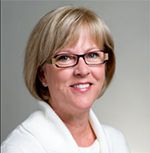 Dr. Kerry Rice: Professor (Boise, Idaho)
Dr. Kerry Rice: Professor (Boise, Idaho)
Dr. Kerry Rice and Dr. Andy Hung were awarded a Research Fellowship with Michigan Virtual Learning Research Institute (MVLRI) to combine data and text mining with emerging deep learning techniques in order to develop predictive models in educational settings.
Dr. Kerry Rice and Dr. Patrick Lowenthal are conducting an evaluation for a 21st Century Community Learning Center grant at Shadow Butte Elementary in Emmett Idaho. Designed to provide Shadow Butte Elementary students with academic, social/emotional, recreations, and technological enrichment and support, these grants support before school, after-school, and summer programs.
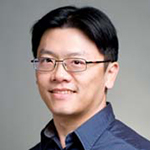 Dr. Yu-Chang Hsu: Associate Professor (Boise, Idaho)
Dr. Yu-Chang Hsu: Associate Professor (Boise, Idaho)
Dr. Hsu has been selected by Massachusetts Institute of Technology and the Verizon Foundation to coach the Best-in-Nation teams from Verizon Innovative App Challenge from 2014 to 2017. His mobile app coaching/training is featured on NBC news ( see full story here). Dr. Hsu’s recent project, funded by the National Science Foundation, focused on researching and developing curriculum that helps STEM major students integrate programming and trigonometry knowledge, and develop computational thinking through creating mobile apps. He has conducted research, and developed as well as taught courses on mobile app design, maker technology for STEAM education, and game-based augmented reality and mobile learning.
 Dr. Patrick Lowenthal (Boise, Idaho)
Dr. Patrick Lowenthal (Boise, Idaho)
His articles “In search of a better understanding of social presence: An investigation into how researchers define social presence” and “Moving beyond smile sheets: A case study on the evaluation and iterative improvement of an online faculty development program” were recently nominated for best journal article awards by AECT’s Division of Distance Learning. In addition to researching social presence, identity, and online learning, Dr. Lowenthal is working on two externally funded projects. One project focuses on developing digital literacy skills in students with disabilities to help them transition on to college or the workplace after high school. The other project focuses on preparing secondary mathematics teachers with video cases of students’ functional reasoning.
 Dr. Chris Haskell (Boise, Idaho)
Dr. Chris Haskell (Boise, Idaho)
EdTech’s Chris Haskell won the 2013 innovator award from the International Association for K-12 Online Learning for his groundbreaking work in quest-based learning. Haskell has thoroughly tracked student success with QBL and has encouraged replication through a tiered-use learning management system at 3dgamelab.org. Unlike traditional instruction that relies greatly on memorization, quest-based learning (QBL) focuses on an individualized and flexible curricular experience. Read full story here.
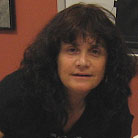 Dr. Jackie Gerstein (New Mexico)
Dr. Jackie Gerstein (New Mexico)
My focus recently has been on a framework maker education and I have been interviewed about it via two online publications:
Don’t Leave Learning Up to Chance: Framing and Reflection
Fashioning a Framework for Maker Education — THE Journal
I presented a full day workshop on this topic – A Framework for Maker Education:
I also have been asked to present it at ASB Unplugged in Mumbai, India this coming February
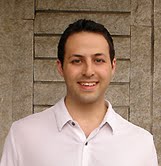 Anthony Saba (Seoul, Korea)
Anthony Saba (Seoul, Korea)
Has been an adjunct instructor and doctoral student in the Educational Technology program at Boise State University since 2012. In addition to these roles, he has also worked as an instructional design consultant at Boise State’s eCampus Center, since 2016. As an instructional design consultant he has worked with faculty to develop courses for various online degree programs, including: Design Ethnography, Anthropology, Business Management, Social Work, Academic Advising, and Economics. His most recent research interests include instructor immediacy and social presence in online courses. Prior to moving to the Boise area in 2016, Anthony lived and worked in South Korea for 18 years working as university instructor and corporate trainer. From 2012 to 2016, he worked for Hyundai Motor Group University developing and managing global training initiatives rolled out in over 38 countries, including: new employee and new executive induction programs, high potential manager programs, culture and diversity and core values programs, and expatriate pre-departure courses.
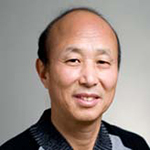 Dr. Youngkyun Baek: Professor (Boise, Idaho)
Dr. Youngkyun Baek: Professor (Boise, Idaho)
has published a new textbook on educational games.
Game-Based Learning: Theory, Strategies, and Performance Outcomes provides a much-needed guide to different forms and applications of digital games in teaching and learning. This book brings together researchers and practitioners from around the world who share their theories, strategies, findings of case studies, and practical approaches to support better performance and learning outcomes when learning with digital games.
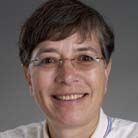 Dr. Carolyn Thorsen; Program Founder. (Boise, Idaho)
Dr. Carolyn Thorsen; Program Founder. (Boise, Idaho)
Dr. Thorsen was recently honored with a medallion recognizing her pioneering vision and innovative practice as the department’s founding chair. The medallion will be presented to graduates at each commencement ceremony.
The department began over 20 years ago and offered graduate instruction to teachers in isolated Idaho communities located well beyond commuting distance to the state’s universities. All courses were online by 1999 and the first distance graduate was a community college instructor in upstate New York. She retired in 2005 after nine years as chair. “I wanted to contribute something to make education better,” Thorsen said. She said the educational technology program was “the right thing to do” for teachers and students everywhere.
“We encourage graduates to wear their medallions when they walk in graduation because the medallions provide special recognition of their achievement,” said Brett Shelton, chair of the Department of Educational Technology.